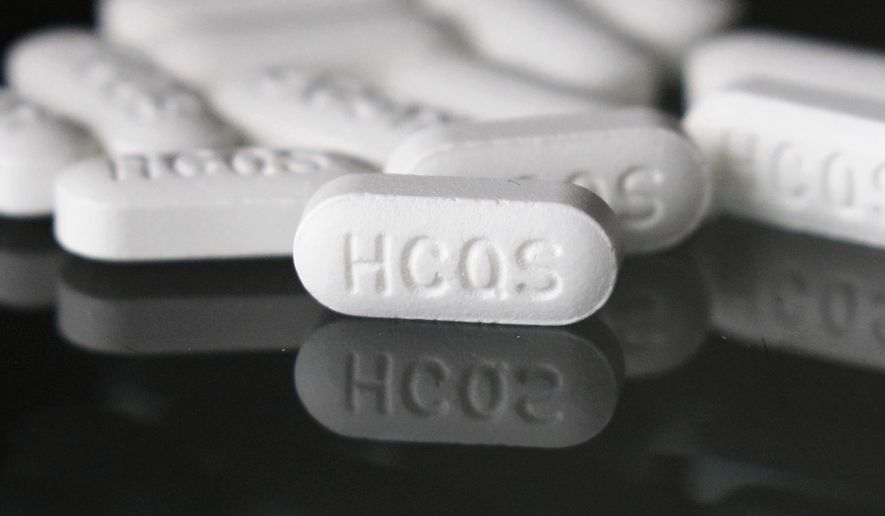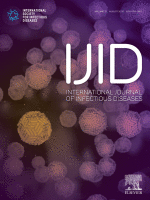
HCQ has been shown to be effective in early-stage treatment of COVID-19
Hydroxychloroquine, sold under the brand name Plaquenil among others, is a medication used to prevent and treat malaria in areas where malaria remains sensitive to chloroquine. Other uses include treatment of rheumatoid arthritis, lupus, and porphyria cutanea tarda.
Hydroxychloroquine has been in use worldwide as an FDA-approved drug for more than 65 years. It’s been prescribed safely billions of times. Based on the best evidence available today, hydroxychloroquine — HCQ, for short — has been shown to be effective in early-stage treatment of COVID-19, the illness brought on by the novel coronavirus.
Initially approved by the FDA for emergency use in coronavirus treatment, political controversy led to the withdrawal of the FDA approval (although FDA chief Stephen Hahn acknowledged that the choice to use HCQ as a treatment for COVID-19 was not properly a question for government regulation, but a choice to be made by a doctor and patient). A growing number of doctors report successfully using HCQ to treat coronavirus patients, particularly in combination with zinc and azithromycin and during the early stages of infection.
Hydroxychloroquine rated ‘most effective therapy’ by doctors for coronavirus: Global survey
Washington Times
 An international poll of more than 6,000 doctors released Thursday (April 2) found that the antimalarial drug hydroxychloroquine was the most highly rated treatment for the novel coronavirus.
An international poll of more than 6,000 doctors released Thursday (April 2) found that the antimalarial drug hydroxychloroquine was the most highly rated treatment for the novel coronavirus.
The survey conducted by Sermo, a global health care polling company, of 6,227 physicians in 30 countries found that 37% of those treating COVID-19 patients rated hydroxychloroquine as the “most effective therapy” from a list of 15 options.
Of the physicians surveyed, 3,308 said they had either ordered a COVID-19 test or been involved in caring for a coronavirus patient, and 2,171 of those responded to the question asking which medications were most effective.
Read Full Article →
Early Outpatient Treatment of Symptomatic, High-Risk COVID-19 Patients That Should Be Ramped Up Immediately as Key to the Pandemic Crisis
American Journal of Epidemiology (Harvey Risch)
 Two candidate medications have been widely discussed: remdesivir and hydroxychloroquine (HCQ) + azithromycin (AZ). Remdesivir has shown mild effectiveness in hospitalized inpatients, but no trials in outpatients have been registered. HCQ + AZ has been widely misrepresented in both clinical reports and public media, and results of outpatient trials are not expected until September. Early outpatient illness is very different from later florid disease requiring hospitalization, and the treatments differ. Evidence about use of HCQ alone, or of HCQ + AZ in inpatients, is irrelevant with regard to the efficacy of HCQ + AZ in early high-risk outpatient disease. Five studies, including 2 controlled clinical trials, have demonstrated significant major outpatient treatment efficacy. HCQ + AZ has been used as the standard of care in more than 300,000 older adults with multiple comorbid conditions; the estimated proportion of such patients diagnosed with cardiac arrhythmia attributable to the medications is 47 per 100,000 users…
Two candidate medications have been widely discussed: remdesivir and hydroxychloroquine (HCQ) + azithromycin (AZ). Remdesivir has shown mild effectiveness in hospitalized inpatients, but no trials in outpatients have been registered. HCQ + AZ has been widely misrepresented in both clinical reports and public media, and results of outpatient trials are not expected until September. Early outpatient illness is very different from later florid disease requiring hospitalization, and the treatments differ. Evidence about use of HCQ alone, or of HCQ + AZ in inpatients, is irrelevant with regard to the efficacy of HCQ + AZ in early high-risk outpatient disease. Five studies, including 2 controlled clinical trials, have demonstrated significant major outpatient treatment efficacy. HCQ + AZ has been used as the standard of care in more than 300,000 older adults with multiple comorbid conditions; the estimated proportion of such patients diagnosed with cardiac arrhythmia attributable to the medications is 47 per 100,000 users…
View Published Abtract →
Treatment with hydroxychloroquine, azithromycin, and combination in patients hospitalized with COVID-19
International Journal of Infectious Diseases
 HIGHLIGHTS:
HIGHLIGHTS: According to a protocol-based treatment algorithm, among hospitalized patients, use of hydroxychloroquine alone and in combination with azithromycin was associated with a significant reduction in-hospital mortality compared to not receiving hydroxychloroquine…
CONCLUSION:
In this multi-hospital assessment, when controlling for COVID-19 risk factors, treatment with hydroxychloroquine alone and in combination with azithromycin was associated with reduction in COVID-19 associated mortality. Prospective trials are needed to examine this impact.
View Published Abtract →
Use of hydroxychloroquine in hospitalised COVID-19 patients is associated with reduced mortality
European Journal of Internal Medicine
 Results
Results Out of 3,451 COVID-19 patients, 76.3% received HCQ. Death rates (per 1,000 person-days) for patients receiving or not HCQ were 8.9 and 15.7, respectively. After adjustment for propensity scores, we found 30% lower risk of death in patients receiving HCQ (HR=0.70; 95%CI: 0.59 to 0.84; E-value=1.67). Secondary analyses yielded similar results. The inverse association of HCQ with inpatient mortality was particularly evident in patients having elevated C-reactive protein at entry.
Conclusions
HCQ use was associated with a 30% lower risk of death in COVID-19 hospitalized patients. Within the limits of an observational study and awaiting results from randomized controlled trials, these data do not discourage the use of HCQ in inpatients with COVID-19.
View Published Abtract →
Hydroxychloroquine Restricted?
America’s Frontline Doctors
It has never happened that the government has restricted physicians from prescribing an FDA approved medication.
Hydroxychloroquine (HCQ) has been FDA-approved for 65 years. Once a medication is FDA approved it can be prescribed by a physician for any reason. If the medication is prescribed for the specific reason the drug manufacturer requested (e.g. pneumonia) that is called “on-label” use, and if it is prescribed for a different reason (e.g. bladder infection) that is called “off-label” use. Being on or off label is not related to the drug’s safety or efficacy. On-label designation means the FDA permits the drug manufacturer to advertise for a specific diagnosis. Physicians prescribe “off-label” 21% of the time and never consider if a drug is on or off label in their daily practice. There are many reasons for this including: physicians are already regulated by medical malpractice regulations, and it is very expensive for a drug manufacturer to get additional “on-label” designations.
The other reason doctors are always allowed to prescribe off label is because it is desirable for doctors to be able to identify new treatments for new situations. When American doctors first starting treating Covid-19, they expected to be able to do as they always have done, which is to try safe medications they already knew including: ivermectin, budesonide, hydroxychloroquine, dexamethasone, zinc, vitamin D, vitamin C, azithromycin, among others. But during Covid-19, State Pharmacy Boards and State Governors have passed regulations that have restricted only hydroxychloroquine and only when being used for Covid-19! This dramatic departure from the way medicine has always been practiced is very alarming to people who are concerned about the doctor-patient relationship.
View AFD Website FAQ →
Hydroxychloroquine Falsely Discredited
No Clinical Benefit?
Lancet, NEJM retract studies debunking Hydroxychloroquine Surgisphere: governments and WHO changed Covid-19 policy based on suspect data from tiny US company The Lancet has made one of the biggest retractions in modern history. How could this happen? Covid-19 studies based on flawed Surgisphere data force medical journals to review processes
Lancet, NEJM retract studies debunking Hydroxychloroquine Surgisphere: governments and WHO changed Covid-19 policy based on suspect data from tiny US company The Lancet has made one of the biggest retractions in modern history. How could this happen? Covid-19 studies based on flawed Surgisphere data force medical journals to review processes
Greater Risk of Heart Failure?
Researchers Overdosing COVID-19 Patients on Hydroxychloroquine, states Association of American Physicians & Surgeons (AAPS) ICMR writes to WHO disagreeing with HCQ assessment, officials say international trial dosage four times higher than India UK Recovery, US Solidarity Trials designed to fail – 5-6X the standard safe HCQ dosage (video: 7 min. in)
Researchers Overdosing COVID-19 Patients on Hydroxychloroquine, states Association of American Physicians & Surgeons (AAPS) ICMR writes to WHO disagreeing with HCQ assessment, officials say international trial dosage four times higher than India UK Recovery, US Solidarity Trials designed to fail – 5-6X the standard safe HCQ dosage (video: 7 min. in)
Correcting the HCQ Record
Hydroxychloroquine as Treatment for COVID-19 and 40+ Other Diseases (Dr. Jim Meehan) Hydroxychloroquine works in high-risk patients, and saying otherwise is dangerous (Dr. Harvey Risch, Yale) Hydroxychloroquine Misinformation Can Be Deadly: Let Patients Decide (AAPS) Gilead: Twenty-one billion reasons to discredit Hydroxychloroquine (Dr. James Todaro)
